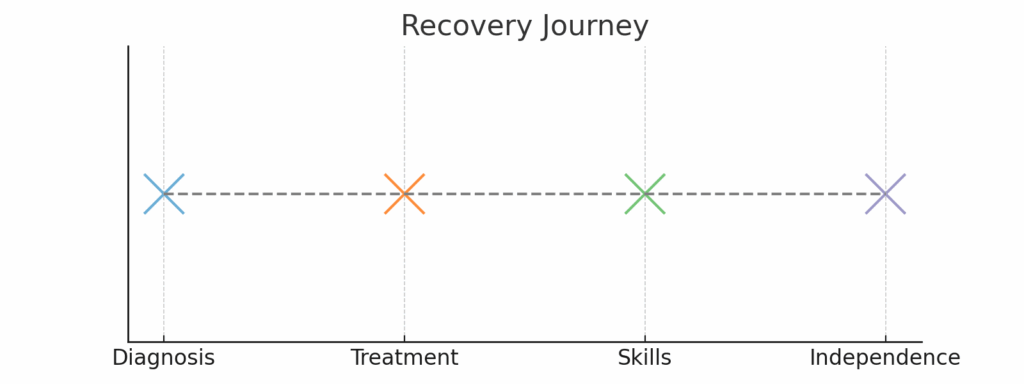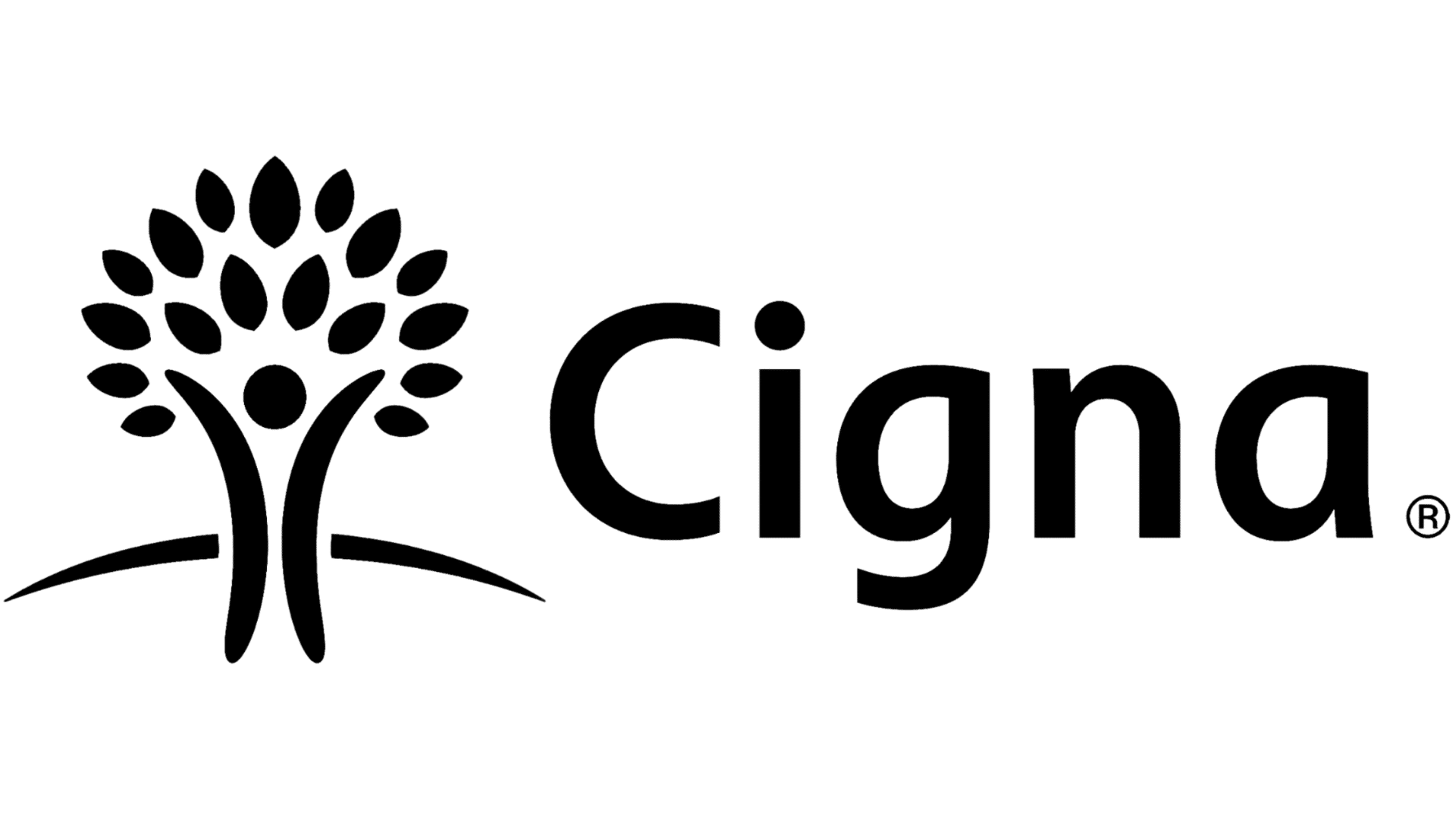Schizophrenia can disrupt work, relationships, and daily routines. Revival Mental Health provides adult‑focused care in Orange County with psychiatry, therapy, and family support. With medication management, skills training, and structured programs, people can manage symptoms and build healthier lives.
SCHIZOPHRENIA TREATMENT IN ORANGE COUNTY

Revival Mental Health Schizophrenia Treatment in Orange County
Schizophrenia is a complex mental disorder that can make daily life challenging. At Revival Mental Health, our goal is to provide accessible and supportive mental health treatment for adults living with schizophrenia. With the right therapy, medication, and supportive treatment programs, individuals can manage symptoms and build healthier lives.
Understanding Schizophrenia and Its Impact
Schizophrenia is a mental health disease that affects how the mind processes reality. Symptoms often include auditory hallucinations, delusional beliefs, and disorganized thinking that disrupt cognition and daily function. These psychosis-related challenges can create fear, anger, and dissociation, making it harder for patients and families to cope.
A mental health professional or psychiatrist will use psychology and neurology assessments to diagnose schizophrenia. Factors such as genetics, neurotransmitter imbalances, or co-occurring conditions like bipolar disorder, borderline personality disorder, or dissociative identity disorder may influence risk. Without treatment, schizophrenia can increase the likelihood of substance abuse, alcohol misuse, or emergency department visits.
Symptoms of Schizophrenia
People living with schizophrenia may experience a range of symptoms that affect emotion, behavior, and cognition:
Psychotic Symptoms: auditory hallucinations, paranoia, delusions, or irrational beliefs.
Negative Symptoms: withdrawal, flat affect, and loss of motivation.
Cognitive Symptoms: impaired memory, difficulty focusing, or poor problem solving.
Anxiety, insomnia, and anger can worsen symptoms and impact daily health care routines. For some, co-occurring addiction or drug use increases emergency risks. Understanding these symptoms helps health professionals design effective treatment programs.
Causes and Risk Factors
Research shows that schizophrenia develops from a combination of genetics, neurochemistry, and environment. A family history of mental health disease increases risk. Imbalances in neurotransmitters like dopamine and serotonin alter brain function and perception.
Other contributing factors may include stress, trauma, epilepsy, drug use, or sleep disorders such as insomnia. Dissociation or mood instability can overlap with personality disorder traits, making dual diagnosis treatment essential. By addressing each factor, psychiatry and psychology professionals can create safer treatment programs for adult patients.
Treatment Modalities for Schizophrenia in Orange County
There are various treatment modalities available to schizophrenic patients in Orange County. These include:
Medication-Assisted Treatment
Antipsychotic medication is the primary treatment for psychosis and thought disorders. Both first-generation and second-generation drugs regulate neurotransmitter activity, reducing hallucinations and delusions. Long-acting injectable medication can help adults who struggle with daily doses or have higher emergency risks.
Patients are carefully monitored by health professionals to adjust dose and limit side effects. Education around sleep hygiene, nutrition, and anger management supports both the mind and body. Insurance coverage often helps reduce barriers to ongoing care.
In some cases, long-acting injectable medicine is preferred for those struggling with adherence, particularly patients in residential care programs or those with homelessness risk factors. Physicians and psychiatrists monitor for side effects, adjusting dosages to improve safety and functioning. Treatment often includes education for both patient and parent, teaching stress management, sleep hygiene, and exercise routines to support brain health.
Behavioral Therapy
Cognitive Behavioral Therapy
and
dialectical behavior therapy
are widely used in the management of schizophrenia. These therapies help patients challenge distorted beliefs, improve emotional regulation, and develop empathy, confidence, and problem solving skills. Therapy can address psychosocial needs, social skills deficits, and background processes such as anxiety, stress, and fear that contribute to relapse.
Therapists may also use cognitive remediation therapy to improve memory, attention, and executive functions. By combining therapy with vocational rehabilitation, education, and peer support, patients gain life skills that promote independence. Programs also incorporate meditation, stress management techniques, and coping strategies for managing paranoia and grandiosity.
Counseling and Peer Support Groups
Peer support reduces isolation and builds community. These groups are led by health professionals or peers with lived experience, helping patients share stories and strategies.
In-person and online programs (meeting internet accessibility and user interface standards) ensure people with visual impairment or mobility challenges can participate. Support groups also teach relapse prevention, anger management, and medicine adherence.
Residential and Dual Diagnosis Treatment
Residential treatment programs in Orange County offer structured care for severe schizophrenia. Facilities provide 24/7 psychiatry, therapy, and nursing support to stabilize symptoms of psychosis. Patients benefit from coordinated primary care, stress management, and skill-building activities.
Dual diagnosis programs address co-occurring conditions such as addiction, substance abuse, or alcohol misuse. This integrated mental health treatment approach improves recovery, enhances cognition, and reduces emergency department visits.
Therapy Options And Supportive Care for Families
A full management of schizophrenia approach addresses thought disorders, paranoia, catatonia, and cognitive symptoms while supporting sleep health and emotional expression. Treatment plans incorporate medicine, therapy, peer support, family group therapy, vocational rehabilitation, and relapse prevention strategies.
Clinicians evaluate medical history, genetics, personality disorder traits, and psychosocial needs to build personalized interventions. Plans also address comorbidities such as bipolar disorder, anxiety disorder, and addiction, ensuring all aspects of health and well-being are treated.
What Families Often Notice First
Families often see early changes in sleep, mood, and focus. People may withdraw from friends, miss work or classes, and lose interest in daily tasks. You might notice unusual beliefs, hearing or seeing things others do not, or a sudden drop in self‑care.
Clinicians evaluate medical history, genetics, personality disorder traits, and psychosocial needs to build personalized interventions. Plans also address comorbidities such as bipolar disorder, anxiety disorder, and addiction, ensuring all aspects of health and well-being are treated.
When To Seek An Evaluation
Seek an evaluation if these changes last more than a few days, disrupt safety, or include hallucinations or strong paranoia. Early care can reduce distress and lower the risk of hospitalization. Call Revival Mental Health in Orange County to schedule an assessment for adult care; if there is immediate danger, call 911 or go to the nearest emergency room.
Schizophrenia Treatment Centers in Orange County
Orange County is home to many specialized schizophrenia treatment centers offering dual diagnosis care. These clinics provide evaluation, diagnosis, and treatment planning that considers risk factors, co-occurring mood disorders, and social determinants like community support or housing insecurity.
Services include antipsychotic medication management, therapy for thought disorders, and programs designed to help patients rebuild confidence, empathy, and understanding of their illness. Centers often verify insurance coverage to reduce barriers to care and offer accessible, ethics-driven treatment that meets health care standards.
Factors Influencing Schizophrenia
Key influences on schizophrenia development and severity include:
Genetic predisposition – Family history of schizophrenia, schizoaffective disorder, or other mental disorders.
Environmental risk factors – Trauma, stress, violence, substance abuse, or homelessness.
Chemical imbalances – Dysregulation of dopamine and serotonin affecting brain function, mood, and thought.
Evidence‑Based Treatment At Revival
Our team provides psychiatry, therapy, and skills training for people living with schizophrenia. We create a focused plan that supports symptom control and daily functioning.
Medication Management And Long‑Acting Injectables (LAIs)
We explain medication choices clearly and check how they work for you. If you prefer fewer daily pills or have had trouble with adherence, we discuss LAIs and how visits are scheduled. Current American Psychiatric Association guidance supports LAIs when preference or adherence is a concern.
Therapy That Helps With Psychosis (CBTp And Skills Work)
Therapy helps you test unhelpful thoughts and build coping skills. CBT for psychosis (CBTp) and skills practice support calmer days and better problem solving. Family sessions help everyone use the same tools at home.
First‑Episode Psychosis (Adults) And Local Resources
Early care supports better outcomes. We guide adults to appropriate services and share local resources for youth through Orange County programs when helpful. We also help families understand next steps and what to expect in the first weeks.
Schizophrenia Support Services and Treatment Plans
A full management of schizophrenia approach addresses thought disorders, paranoia, catatonia, and cognitive symptoms while supporting sleep health and emotional expression. Treatment plans incorporate medicine, therapy, peer support, vocational rehabilitation, and relapse prevention strategies.
Clinicians evaluate medical history, genetics, personality disorder traits, and psychosocial needs to build personalized interventions. Plans also address comorbidities such as bipolar disorder, anxiety disorder, and addiction, ensuring all aspects of health and well-being are treated.
Schizophrenia and Other Mental Health Disorders
Dual diagnosis care is vital for those with schizophrenia and co-occurring mental health or substance use disorders. This includes mood disorders, eating disorders, and schizoaffective disorder, which require integrated medicine and therapy strategies.
By treating both conditions simultaneously, programs improve long-term stability, enhance executive functions, and reduce relapse risk. This approach also fosters empathy, motivation, and insight, supporting sustained quality of life improvements.
Patients Living with Schizophrenia and Diagnosis
While there is no permanent cure, ongoing treatment programs make recovery possible. Patients learn coping skills, stress management, and healthy routines to support sleep, reduce anxiety, and maintain independence.
Mental health professionals guide patients through transitions — from residential care to outpatient therapy, community groups, and vocational training. With the right balance of medication, therapy, and support, adults with schizophrenia can live fulfilling lives.

What To Expect During Schizophrenia Treatment in Orange County, CA
Our residential facility for mental health is a safe and supportive space where individuals can focus on their recovery without the distractions and challenges of daily life. The environment at our residential treatment center is designed to be therapeutic, offering residents the peace and tranquility they need to heal.
Assessment
Personalized Treatment Plans
Therapeutic Interventions
Skill Building
Supportive Environment
Continuum of Care
Assessment
Upon admission to a schizophrenia treatment center, patients undergo an evaluation by a psychiatrist or physician to confirm the diagnosis of schizophrenia and identify co-occurring conditions. This includes reviewing thought patterns, mood, memory, and neurological function, and addressing accessibility needs like screen reader or html-compatible resources.
Personalized Treatment Plans
Plans incorporate medicine, therapy, stress management, vocational rehabilitation, and psychosocial support. Clinicians regularly adjust plans based on patient feedback, symptom changes, and risk factor reassessment.
Therapeutic Interventions
Interventions may include cognitive behavioral therapy, dialectical behavior therapy, and cognitive remediation therapy. Programs address grandiosity, paranoia, anhedonia, and fear while improving confidence, empathy, and perception of reality.
Skill Building
Patients learn stress management, sleep hygiene, and problem solving techniques. Education covers relapse prevention, ethics, and background process awareness to enhance insight and executive functions.
Supportive Environment
Residential care settings offer safety, accessibility, and consistent support from nursing staff, clinicians, and peers. These programs promote healthy mood regulation, coping strategies, and community engagement.
Continuum of Care
After residency, patients transition to outpatient care, online support groups (meeting internet accessibility standards), and primary care follow-ups. Peer support, vocational training, and exercise programs help maintain stability and quality of life.
Why Revival Mental Health?
We focus on adult care with a structured program in Orange County. Your plan can include medication management, CBTp, skills training, and family education delivered by one coordinated team. We track progress and adjust the plan to match your goals.
Access is simple. We offer fast benefits checks and a clear admissions process. Call us or verify insurance to start your assessment today.
FAQs About Schizophrenia Treatment in Orange County
Symptoms include disorganized speech, hallucinations, delusional beliefs, paranoia, and emotional expression changes. Negative symptoms like anhedonia and social withdrawal also occur.
Diagnosis involves a psychiatric evaluation, medical history review, and symptom analysis. Early diagnosis improves treatment outcomes.
Options include antipsychotic medicine, therapy, residential care, and dual diagnosis treatment for co-occurring disorders.
There is no permanent cure, but with proper medicine, therapy, and lifestyle support, patients can manage symptoms and improve quality of life.
Support groups provide empathy, understanding, and community connection, helping reduce isolation and support relapse prevention.
Take the First Step Towards Recovery
If you or a loved one is struggling with mental health issues, don’t wait to seek help. Our residential facility for mental health is here to provide the support and care you need to begin your journey to recovery. Contact us today to learn more about our residential treatment programs and how we can help you take the first step toward a brighter future.
At Revival Mental Health, we are committed to helping you achieve lasting recovery and live a life of mental health and well-being. Let us be your partner on this journey.
We accept most major insurance plans
We are also in network with other providers. Please reach out to verify your benefits.
Contact Us Today
If you or someone you care about is living with schizophrenia, know there is hope for a brighter future. Contact Revival Mental Health today to schedule an initial consultation and take the step towards restoring hope, wellness, and a fulfilling life.
Are you or a loved one struggling with anxiety, depression, or other mental health concerns?
Find out if Revival Mental Health suits you by contacting and speaking with one of our admissions representatives.
Visit SAMHSA for more information or contact us today.













